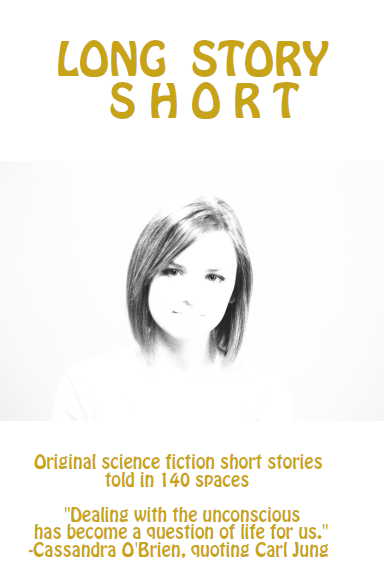Psycho-analyzing The Doctor, I noticed he seems to be hiding a secret—definitely from us and his companions, and probably from himself.
During the Three Doctors and Five Doctors episodes, One particularly was disturbed and disrespectful of his replacements. And the others tended to be combative and
uncomfortable with each other.
If they are all the same person, then why would they have such an aversion and dislike for their other selves?
With the exception of the affection Ten expressed for Five, The Doctor has an ambivalence towards his other incarnations.
I propose this is because he knows, or at least suspects, that none of them are truly him.
Even with Jackson Lake (the human who thought he was The Doctor), The Doctor was resistant to accepting that this man claiming to be Him could really be The Doctor— either a future regeneration or alternate reality. He is subconsciously predisposed to resist and resent other incarnations.
Why?
There is a succession of experiential memory and titular identity, but not individual identity.
He increasingly realizes he has no individual identity, which is indicative of Eleven’s deep & profound insecurity and awkwardness about his identity--- which he clearly expresses. Note his continual insistence that bow ties are cool. And attraction to wearing the Fez. More than simply a demonstrative expression of not caring about looking ridiculous, he is desperately grasping at
something to give him a distinct identity, a sense of specific self.
Indeed, every Doctor has adopted some element of fashion to distinguish himself; such as Eleven’s bow tie, Four’s scarf, Five’s lapel garnish, Six’s technicolor coat, and Nine’s leather jacket. These affectations and artifacts are means of self-expression.
Also, think about what Ten confesses: “I’m The Doctor. But beyond that, I literally do not know who I am.”
He was not being facetious, and wasn’t referring only momentarily to his new self because his mind hasn’t settled from the regeneration process, but because someone else has been given The Doctor’s life.
Not only is this an other person, but this “other” person infused with The Doctor’s memories becomes yet another person. Without the title, the role--- he is no one. Not only that, the identity is imposed on him, inserted into a new mind.
The memories are passed on, but into the minds of different bodies. Much like Whedon’s Dollhouse TV series.
A strict memory transfer onto a completely vacant brain would not result in an altered personality.
Every incarnation—the circumstances of his life (and particularly surrounding his death) influence the dispositions or temperaments of each next incarnation. Nine’s personality is a reflection or reaction to what happened to Eight. Situations during Nine’s life and death informed the attitudes of Ten, which set the template for Eleven.
Ten revealed to Wilf that he becomes a different person with each regeneration.
He can’t ever see Wilf again, because the person who is Wilf’s friend will be no more. Which is part of the reason for his deep despondence as unavoidable regeneration approaches.
His continued affinity for Sarah Jane in any incarnation is not merely a residual emotional attachment, but more from a respect for her as a person, for what she does.
Because the memories of previous incarnations become those of each new incarnation, he remembers a fondness for the companions of former incarnations, but does not necessarily continue to feel that same level or type of affection.
(as a side note, I think Rose never saw Ten as Ten, but as an extension of Nine—that is who she fell in love with, not Ten.
Ten continued to love Rose as an extension of her intense connection to Nine—at least at first; although gradually, Ten came to love her as Ten.
But I doubt Eleven would have the same appreciation of Rose, due to divergent circumstances and conditions of the relationship they would have—even if she were present at the time of his regeneration.
Sarah Jane is the only companion who is someone other Doctors are able to mutually adore, or at least respect… maybe regardless of who is WHO. Perhaps because she doesn’t reflect only one Doctor or one Doctor’s circumstances, but all of them and none of them. She is the companion most like himself.
She is not dependent on The Doctor for her identity, or purpose. The other companions, separate of The Doctor, seem to mimic The Doctor, but Sarah Jane is the only one who has
fully integrated his life style to make it her own. She doesn’t NEED the Doctor. She is the whole person, where as he is the sum of parts, and other companions merely fragments of those parts. Maybe Sarah Jane is what he wants to be— his true, ideal self.)
He serves as a role model/ inspiration for his companions, so they follow his lead, acting/ thinking more like him. Their actions become his actions, and then vice versa. They are inspired to want to not disappoint him.
But their thoughts/ actions are not his.
When his companions fail to mimic him exactly or think/behave at his level, fail to fully or properly implement what he hopes to teach them, if they have a flawed execution of his example, he gets a skewed, disappointing image of himself. They are a reminder of his mistakes.
In multiple ways—deliberately in inadvertently, The Doctor abandons his past.
Regeneration is not merely a reconstitution or rearrangement of molecular structure. It is not just a symbolic or metaphorical death… The Doctor literally dies
each time. Which explains the anguish and reluctance of Nine and Ten when they were about to “regenerate”.
Why would Nine be so keen and distressed to say goodbye to Rose is he wasn’t going away? You could tell Nine was seriously not ready to leave this persona.
Likewise, why would Ten be so distraught as to bemoan “I don’t want to go”?
Even Eight commented that his memory loss and disorientation was because he was dead too long. He admits the death and dying are actual, not figurative.
And why would each incarnation have such drastically different personalities unless a fully formed, separate person was not superimposed?
Rather than a regeneration, I wonder if a kind of teleportation isn’t actually occurring.
The Matrix on Gallifrey is said to record all Time Lord experiences and preserve their spiritual essence.
Maybe this is how the memory continuity is sustained and able to transfer to each new Doctor.
But where do these replacement people come from?
Are they snatched from their Time Lord lives, plucked out of time? And if so, randomly or cherry picked?
Are the bodies pulled from history and stockpiled? Cloning is unlikely, considering they each have developed personalities.
Like Sam Becket in Quantum Leap, a new person is inserted into the role, similar to the continuity of Caesar.
They are and are not him.
So WHO is he?
I think this is why he tends to abandon his companions after each regeneration. Our friends are a reflection of us:
his former companions not only remind him of who he was, but also who he is not anymore.
As such, they would no longer be compatible with the new incarnation—which would generally not have the same attachment to, or affection for, those companions.
Being a whole new person, he needs new friends to mirror him.
His companions are his mirror. He and his companions reflect each other, shape each other’s behavior.
Davros perceives this when he reveals The Doctor’s “children of time”. The people whom he has de facto forged into his weapons.
Doctor has companions to help him see who he is, to anchor & give him an identity. The kind of Doctor he becomes largely depends on who his companions are—they define, refine and guide him.
The TARDIS is also an extension of him. Rather than just an inanimate object, it is actually alive, exhibiting a degree of sentience. And it is another character in the show. It has a symbiotic relationship with him.
His TARDIS is intrinsically and intimately bonded with him; it knows him, deep into his subconscious. So immersed in both time and The Doctor’s psyche, its random destinations are not actually so random, not a matter of faulty mechanics or piloting error.
No, TARDIS assumes control and takes him not only where TARDIS knows The Doctor wants
to go, but needs to go… as in where he is needed.
Friday, May 10, 2013
Subscribe to:
Post Comments (Atom)





















No comments:
Post a Comment